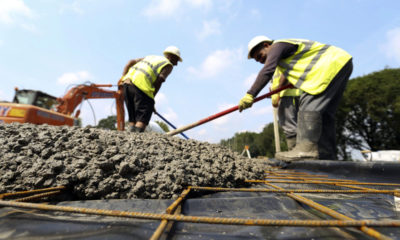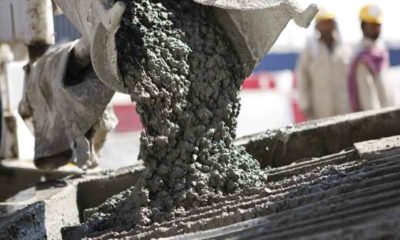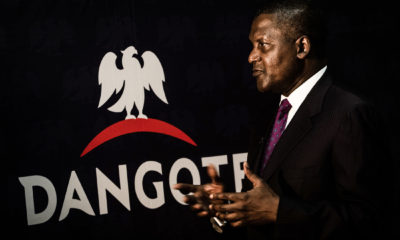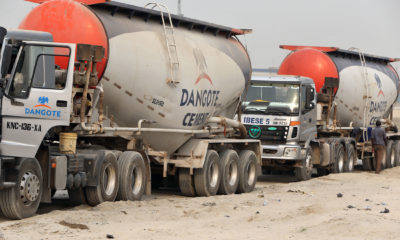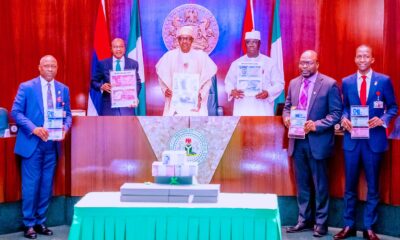GCR Ratings (“GCR”) has affirmed Dangote Cement Plc’s national scale long-term and short-term Issuer ratings of AAA(NG) and A1+(NG) respectively, with the Outlook accorded as Stable. Concurrently, GCR has affirmed the national scale long-term Issue rating of AAA(NG) each accorded to the existing N100bn Series 1 Senior Unsecured Bonds and N50bn Series 1 (Tranche A-C) Senior Unsecured Bonds, with the Outlook accorded as Stable.
| Rated Entity / Issue |
Rating class |
Rating scale |
Rating |
Outlook / Watch |
| Dangote Cement Plc |
Long Term Issuer |
National |
AAA(NG) |
Stable Outlook |
| Short Term Issuer |
National |
A1+(NG) |
| N100bn Series 1 Senior Unsecured Bond |
Long Term Issue |
National |
AAA(NG) |
| N3.64bn Series 1 Tranche A Senior Unsecured Bond |
Long Term Issue |
National |
AAA(NG) |
| N10.45bn Series 1 Tranche B Senior Unsecured Bond |
Long Term Issue |
National |
AAA(NG) |
| N35.91bn Series 1 Tranche C Senior Unsecured Bond |
Long Term Issue |
National |
AAA(NG) |
Rating Rationale
The ratings reflect Dangote Cement Plc’s (“DCP” or “the Group”) competitive position as one of Africa’s leading integrated cement manufacturers, evidenced by very strong earnings, robust cash flows and solid gearing metrics.
DCP’s ability to penetrate new markets with large-scale, modern and energy-efficient factories give it a strong competitive edge in the African market. Nevertheless, the company profile is constrained by the very high concentration to the Nigerian market, accounting for about 88% of group EBITDA and 65% of capacity at end-March 2021. In recent periods, DCP has increased focus on its export strategy within West and Central Africa, which should support the advancement of its competitive positioning across the African continent, albeit marginally offset by the higher risks in many of the countries it is targeting.
DCP’s market dominance has translated into very strong earnings and cash flows, with the EBITDA margin registering around 47% over the last five years, well above the industry average. Based on the 1Q FY21 management results to 31 March 2021, the margin registered around 53% (FY20: 46%), supported by improved cement volume sales across its key markets, and its cost control efforts with cheaper fuel mix and lower power costs. Inflationary pressure and foreign currency shortages (particularly in Nigeria) are expected to continue to weigh adversely on production costs and operating expenses, but DCP’s strong financial profile serves to moderate the impact of external shocks. The current headroom to ramp-up production volumes based on existing capacity across other market should drive strong earnings growth over the medium term, while sustaining strong margins.
At 1Q FY21, gross debt declined to N426bn following part repayment of the existing obligations. This saw annualised net debt to EBITDA registered at a low 0.4x, against 0.7x recorded at FY20, indicative of a strong credit protection. Similarly, EBITDA coverage of net interest was high at 16x in 1Q FY21, from an average of 11x between FY16 and FY20. In May 2021, DCP successfully raised N50bn from the debt capital market in Series 1 Senior Unsecured Bond Issue under its N300bn Bond Issuance Programme. Notwithstanding the additional amounts raised under the Programme, GCR expects the Group to continue to demonstrate strong financial flexibility, with net debt to EBITDA (including operating leases) expected to range between 40%-55% over the outlook period, and net interest cover projected between 10x and 15x. The Group’s robust operating cash flow is a key mitigant against concerns of higher debt. In this regard, Operating cash flow (OCF) coverage of debt registered at 166% in 1Q FY21 and should remain strong over the rating horizon.
DCP’s liquidity assessment is underpinned by expectation that cash flows will remain strong, along with N146m in cash and N153m in unutilised committed funding lines. Nevertheless, the assessment is somewhat constrained by the very high level of short-term debt, as well as the historically high dividend pay-out ratios. The uses vs. sources liquidity coverage is estimated at 1.3x over the next 12 months.
The N50bn Series 1 Senior Unsecured Bond is split into N3.64bn Tranche A, N10.45bn Tranche B and N35.91bn Tranche C, with varying interest rates and maturities in 2024, 2026 and 2028, respectively. Being senior unsecured debt of DCP, the existing N100bn Series 1 Bond and the additional N50bn Series 1 Tranche A-C Bonds rank pari passu with all other senior unsecured creditors. As such, the Bonds will bear the same national scale long term rating as that accorded to DCP. Accordingly, any change in DCP’s long term Issuer rating would impact the Bond rating.
Outlook Statement
The Stable Outlook reflects GCR’s view of DCP’s robust earnings and strong cash flows, which serves to moderate the impact of external shocks and limit recourse to additional debt.
Rating Triggers
A rating upgrade is not possible as DCP’s long-term and short-term ratings are the highest possible ratings on GCR’s rating scale. However, downward ratings pressure could arise from protracted earnings pressure or greater competition emerging from major international cement manufacturers. The aggressive dividend policy could result in materially higher than anticipated leverage and adversely impact GCR’s view of liquidity.




 Naira4 weeks ago
Naira4 weeks ago


 Naira3 weeks ago
Naira3 weeks ago


 News4 weeks ago
News4 weeks ago
 Travel4 weeks ago
Travel4 weeks ago




 Naira4 weeks ago
Naira4 weeks ago
 Naira3 weeks ago
Naira3 weeks ago


 Jobs3 weeks ago
Jobs3 weeks ago


 Travel3 weeks ago
Travel3 weeks ago

